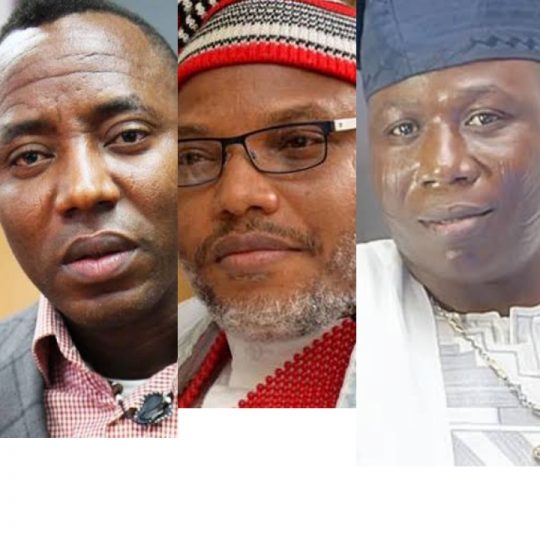By OKOI OBONO-OBLA
The Federal government’s executive branch lacks the constitutional authority to restructure the country or order a referendum on any contentious political or constitutional issue.
The police action that snowballed into the tragic Nigerian civil war in Gakem, a sleepy town on the border between the Northern and Eastern Group of Provinces (now Benue and the Cross River States), took place on 6 July 1967.
On 15 January, 1966, a group of army officers led by Major Kaduna Nzeogwu had toppled the civilian government under Sir Abubakar Tafawa Balewa, Prime Minister. At the same time, the then President, Dr. Nnamdi Azikiwe, was the Head of State. Nigeria was then practicing the Westminister-style parliamentary democracy, where two separate persons hold the Head of State and Head of government, respectively. Major Nzeogwu was unable to impose his authority around the country after overthrowing the government. As his authority floundered, he was arrested by the army then under the leadership of the General Officer Commanding the Nigerian Army, Major General Aguiyi Ironsi, who eventually became the Head of State and Supreme Commander of the Armed Forces of the Federal Republic of Nigeria. He proceeded to issue Decree No 1 of 1966. The decree effectively abolished federalism introduced in Nigeria under the Macpherson Constitution that came into force in 1951.
It also changed the constitutional structure of Nigeria from regionalism to a Unitary System of government rooted in a military command structure. The four regions, namely: Northern, Western, Mid Western, and Eastern, became Northern, Western, Mid Western, and Eastern Provinces.
The Constitution negotiated at the London Constitutional Conferences held in 1956 and 1959, respectively, was abolished as a prelude to Independence.
On the 27 May 1967, the military governor of the Eastern group of Provinces, Colonel Chukwuemeka Oduegwu Ojukwu, nursing grievances over the counter-coup that took place on 27 July 1966 that resulted in the killing of Major-General Aguiyi Ironsi and others and the attacks on people living in the North from then eastern group of Provinces declared secession of Eastern Nigeria from the Federation of Nigeria. The declaration of secession was after the peace talks held in Aburi, and Ghana had failed to resolve it.
On 3 July 1967, the then Head of State and Commander-in-Chief, General Yakubu Gowon, had ordered a contingent of troops deployed from Kaduna to go to Enugu to arrest Colonel Ojukwu for acts of rebellion against the Federal Republic of Nigeria. On reaching Gakem in the present Bekwarra Local Government Area of Cross River State, Biafra troops deployed to guard the border town opened fire on the Nigerian Army troops deployed to go to Enugu to arrest Colonel Ojukwu on the 4 July 1967, effectively starting the Nigerian Civil War, which lasted till 15 January 1970.
Therefore 6 July, 2021 marks the 54th anniversary of that tragic event. It is sad that after 54 years, some misguided people are beating the drums of another civil war in Nigeria. What lessons have we learned from those ugly chain of events? When even European powers such as Germany, France, etc. (who fought themselves in several wars in the 17th, 18th centuries and the first world war 1917-1919 and second world war 1939 to 1945) have come together to form the European Union that will eventually merge into a Federal Europe, misguided people want us to go into balkanization?
Constructive dialogue and engagement for those aggrieved with historical, constitutional, political, economic, and social injustices in Nigeria is the way to go, not secession/war!!!
Those who want restructuring should mobilize and elect pro-restructuring candidates in the 2023 General election who will push that agenda in the States and National Assemblies. Those who want a Referendum on any issue should also endeavor to elect candidates into the States and National Assemblies to push that agenda. The Federal government’s executive branch lacks the constitutional authority to restructure the country or order a referendum on any contentious political or constitutional issue.
We must learn lessons from the current civil wars raging in Iraq, Syria, Libya and Ethiopia !!!




